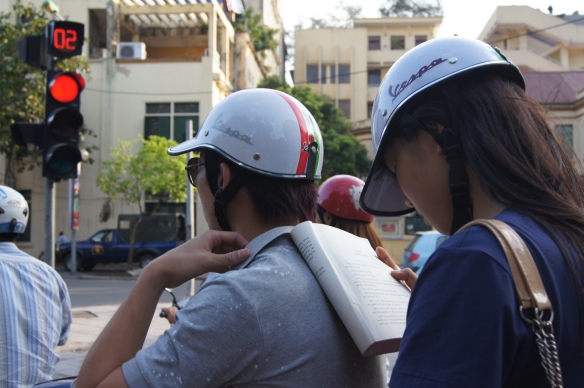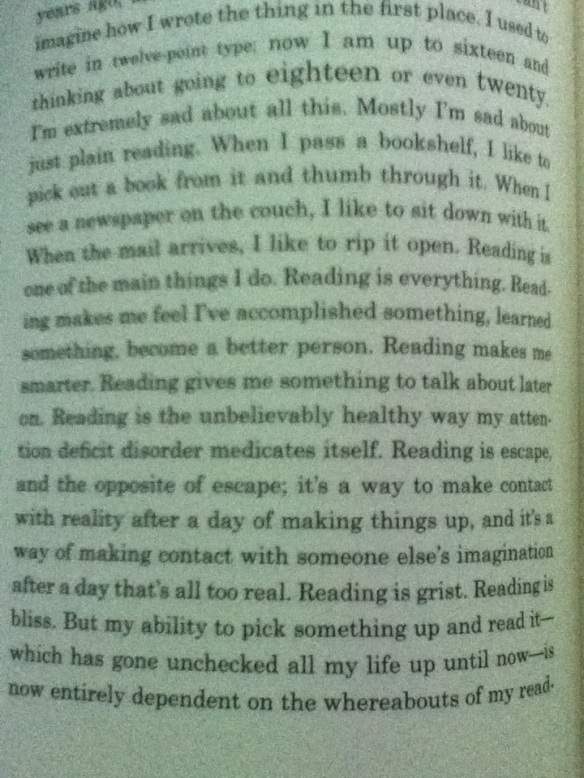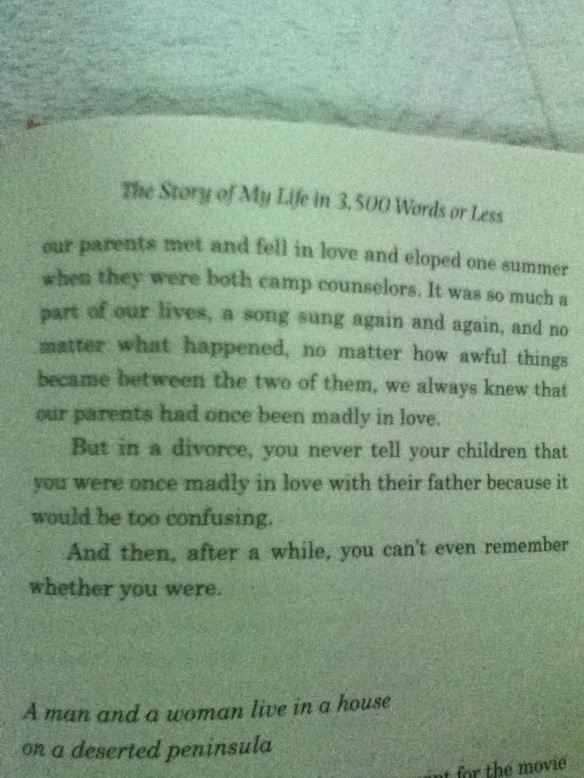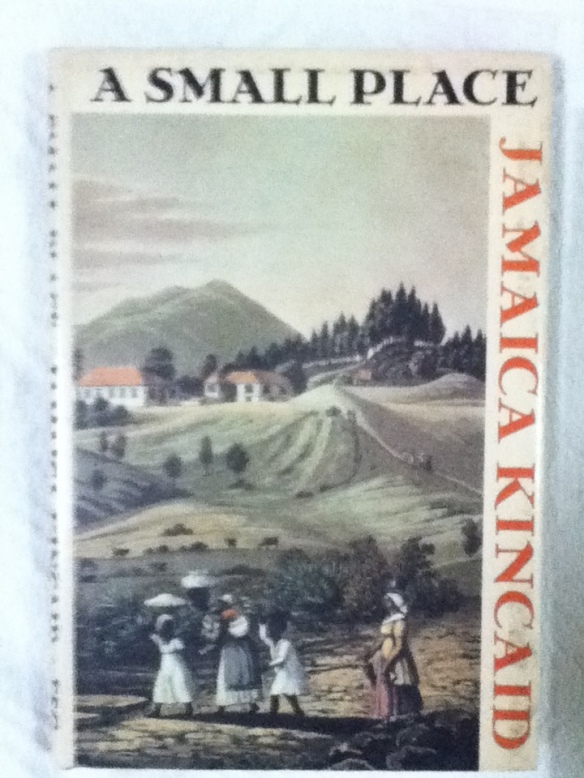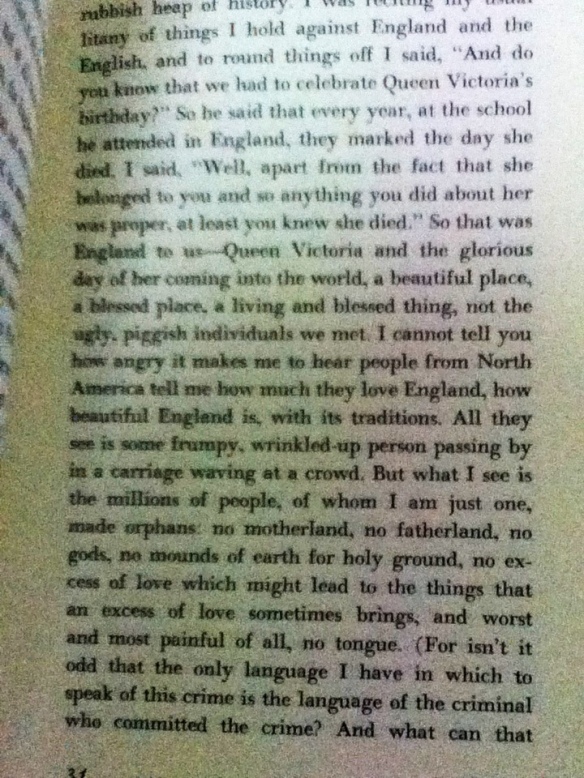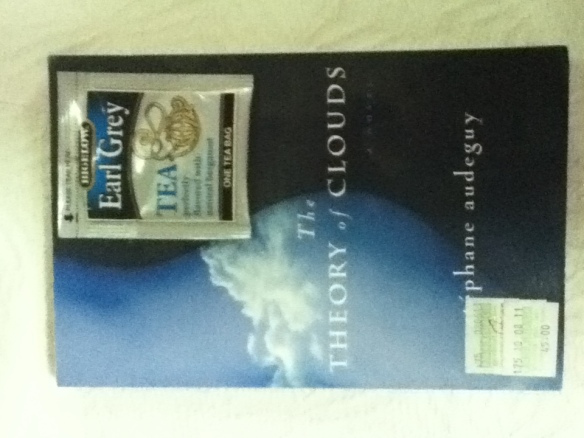 As in travel, there can also be missed opportunities in reading. One such recent flop is Peter Carey’s, Wrong About Japan. The title was what reeled me in at first followed by the bright cover and the illustrated pages that showed some images from the handful of manga that I have grown to know and love. Incidentally, the blurb also promised to take me to Japan via its backdoor to travel with a father and son who were trying to go off the beaten path in search of “real Japan.” There was promise of adventure, powerful emotions and the heightened thrill of travel through roads which I felt deserved to be explored more in the literature. It also seemed doubly exciting because all of this would happen in roughly 100++ pages. I was ecstatic and even the librarian sensed it.
As in travel, there can also be missed opportunities in reading. One such recent flop is Peter Carey’s, Wrong About Japan. The title was what reeled me in at first followed by the bright cover and the illustrated pages that showed some images from the handful of manga that I have grown to know and love. Incidentally, the blurb also promised to take me to Japan via its backdoor to travel with a father and son who were trying to go off the beaten path in search of “real Japan.” There was promise of adventure, powerful emotions and the heightened thrill of travel through roads which I felt deserved to be explored more in the literature. It also seemed doubly exciting because all of this would happen in roughly 100++ pages. I was ecstatic and even the librarian sensed it.
So the reading commenced and I gradually learned that Peter Carey read extensively on Japan. he’s one of those people I would have loved to walk the Japanese streets with if only because he appears to have done his homework and read up extensively on Japan. He also came with an awareness of the Mushroom Cloud which was loomed heavily on my mind after finishing Audeguy’s Theory of Clouds. But that will follow in a different post. For now, there was this guy, the father, and his son who had just reached an age of semi-independence and was choosing to read manga while vowing to live in Japan in the future. My expectation was that the book would cover their actual relationship but then it seems to have been a ploy for the best-seller ranks. We find out that the trip was really purposely made so that a book might be written and while that doesn’t really affect the turnout of the book, certain events really made me gasp and wonder why I had taken this book out of the library to begin with. Let me illustrate by way of several quotes:
It is the nature of tourism that one returns not only with trinkets and postcards but also with memories of misunderstandings, hurts ignorantly inflicted across border lines of language and custom. (p. 92)
True. I found this particularly moving because part reason why travel widens our perspectives and opens our minds has to do with the fact that we traverse emotional borders along with actual ones found on a map. We can’t please everyone (either the persons we travel with or even our own selves as we like to imagine we might be when taken away from the ordinary). It’s all very moving in both the literal and the figurative and yet, Carey is correct to point out that misunderstandings are bound to happen. At this point, father and son have met Takeshi. Carey describes him ans a teenage Japanese “visualist” who is quite obsessed with Gundam and so he dresses accordingly. Carey Jr. makes his acquaintance online and so upon arriving in Japan and just after meeting their first funky toilet, father and son meet Takeshi.
This is normally the point in any non-fiction essay about travel when I get really excited because characters mean changes in itinerary and basically, everything fun about travel happens here! The people you meet are the portal to another culture and if you’re lucky they come along quite frequently though Carey’s experience proves to me that it’s not luck but risk that sets interesting travelers apart from the usual. When in the presence of the portal, you must jump in or else you lose an opportunity…and that loss of opportunity could not have been more apparent than in the father’s reaction to this boy. They were to meet the creator of Gundam and the son had invited his friend (who at this point already lent him a cell phone and offered his services as a local tour guide through their “real Japan”) to the utter surprise of the father who didn’t even hide his feelings. Translation: the father’s a prick. Takeshi doesn’t join them. Instead, he is made to wait outside while the interview being conducted lasts more than two hours.
Next, the pair are scheduled to visit Studio Ghibli in order to understand better the works of Miyazaki. The relationship between them and Takeshi have already gone sour and to the Careys this is merely because the Japanese youngster is a fan of Gundam whom they are letting down on account of their visit to Mr. Miyazaki. They don’t see Takeshi for a while until…
…more likely he doesn’t want us to see him here. He can’t be proud of working here. It’s like McDonald’s. (p. 143)
In a redeeming moment, father and son decide that they’ve had enough of “real Japan” with all its culture and foreign-ness and opt for something a little closer to home. They walk into Mister Donut and are surprised to see Takeshi behind the counter greeting them nonchalantly and getting their orders. The quote above is Carey’s explanation to his son who clearly sees that Takeshi’s been hurt. By now I am already throwing my fist against the wall and thinking about everything wrong with this person who’s writing the book:
- You’re being an asshole…to a kid.
- You’re demeaning his work by saying he shouldn’t be proud of actually having a job that’s honest and straightforward…sure he’s in the service industry but since Carey is from the “first world” this might be his understanding of a decent job: one that doesn’t put you on the service-end of the industry…
- You’re kinda selfish. The trip’s really been about the dad all along. His son has barely any dialogue and shows little interest in what’s going on precisely because again, refer to first sentence of #3.
- You’re in another country and being all pushy about your beliefs…in most of the places we visit with the Careys, the interviews have mostly been led astray by the writer who, despite all attempts by everyone he meets, still thinks that his view is what is ultimately reigning in this world of unfathomable otakus, visualists and manga aficionados. He meets everyone important in the industry and concludes that language is a barrier and even if it weren’t, he would never really understand Japan because the people wouldn’t make room for him to understand it because he’s a foreigner. Erm, okay. Whatever. I don’t want to travel with you, ever. EVER!
Then, out of nowhere, he really put the icing on the cake when he had this to say:
[Miyazaki’s world is]…more sophisticated that the flat, cute world of Disney. …it was drawn from life.
Holy guacamole! My six-year-old self was ready to throw the Betamax at him even at the risk of not being able to play my precious Little Mermaid again. He made me so furious at this point that I nearly gave up on reading altogether…I was ready to settle for some tv and do something else. The book completely killed my expectations and not in a good way either. I was of the opinion that he poorly represented the manga-loving Japanese (who for all their strangeness and mystery are quite like us and are also unique so as to deserve more than just a diminutive assessment from a callous traveler).
Then, three days later, his comment on Disney was still stewing in my head but this time the fury had subsided enough for me to look back at the ending and really discover whether this book had any redeeming quality besides the pretty printing and wonderful premise. I imagined a conversation I’d share with Carey…an actual one wherein I wasn’t shouting anymore and berating him for all those other sins I believed he had committed. We’d be sitting on lounge stools at some bar in Japan. I’d sip my rhum coke while he’d fiddle with his sake teacup and I’d tell him, “You know, I like Disney not just because I grew up with him but because he was all about imagination. He [Walt Disney] wanted to hone its power and make something out of it. He also wanted everyone to try to see things for what they could be even as he represented them for what they were.” Then, after a pause and a wayward look directed at Japan and its brightly lit surface, Carey would look at me and say, “I’m a writer. Imagination is also my field, my business…but here in this book, I’m a dad too.” I’d leave the rest of the rhum coke untouched, stand up, shake Carey’s hand and make real eye contact as if to say, “Yeah, exactly. Thanks for writing the book.”
I would have walked away from all of this hating the entire experience of being taken along on a trip I didn’t intend to engage in to begin with. I’d have complained more lengthily about expectations and false advertising and the terrible fate of tourists who live on another side of the world…but then, just thinking about all that makes me shift in my seat because deep down, I know that these are the exact same qualities I hate in this guy’s character in the book.
Long ago, i read a travel anthology called Bad Trips. It was about every journey that could possibly go wrong and in hindsight, all the most memorable trips are the ones that turn out good because they’re just so bad. So, whereas others might pick up Carey’s Wrong About Japan thinking after reading it that it was a waste of time, a missed opportunity–I think I’ll settle for the blurb and believe that I wasn’t being lied to at all.
This is a powerful story of a father who comes undone mostly as a parent and not so much as a writer (because the prose and the allusions kept me turning pages and looking for my copy of Andy Kerr’s Lost Japan!) He’s perpetually clueless when dealing with his son’s whims to the point that even when they lived in a section of Japan that used to house some of the more famous brothels, he decided he wasn’t going to utter a word about this to his 12-year-old who had access to a wealth of information and probably already knew this. He had difficulty understanding manga because in his head it was something that someone had to understand rather than just enjoy as young people would. Heck, he even asked his Japanese friend to watch Grave of the Fireflies with them just so they could pause the movie every now and then, and he in turn could ask his questions about culture and whatever else you don’t really need to ask when watching great cartoons.
This book is worth reading because it is a journey for the reader…to be brought to the lands of annoyance, to have conversations with the writer and faux debates in one’s head–this is what books ought to do. And it’s also about imagination: both what we imagine to be the kinds of worlds we belong to as well as what we have to imagine to keep our lives from falling apart completely. The book ends shortly after the meeting with Miyazaki. The lady who had arranged it, a certain Mrs. Miyagi, had this to say to the seemingly confused and obviously downtrodden father who had just realized that perhaps he had reached a dead-end in this entire project:
[On Miyazaki’s creative life and because Mrs. Miyagi feared that the writer might have been lost in translation, her fax reads:] He [Miyazaki] said that he thinks one of the most important of man’s abilities is the imagination, so the purpose of his creative activities is to develop the imagination of the children, the coming generations. Imagination can create a totally different world, depending on its use. It can give birth to virtue or destructive weapons which threaten the world. He mentioned being afraid of the potential risk. (p. 152)
Wow, then the thoughts really come rushing in…what of this manga that alludes often to the atomic bomb? What of Japan’s actual history and the kinds of tensions that brings to the reader’s imagination? What of Feynman who was so excited to be a part of this project to end all wars? What of people like him who believed then that eliminating the enemy might bring peace? And what of all the sleeping atrocities we wish would never wake up? What of nuclear power and the nations that wield it? Everyone is both parent and child…yet, trite as it may seem, even in this generation, Lennon still has quite a captive audience who sing along quite well to his, Imagine.
Incredible what thoughts pour out after reading just one book.

